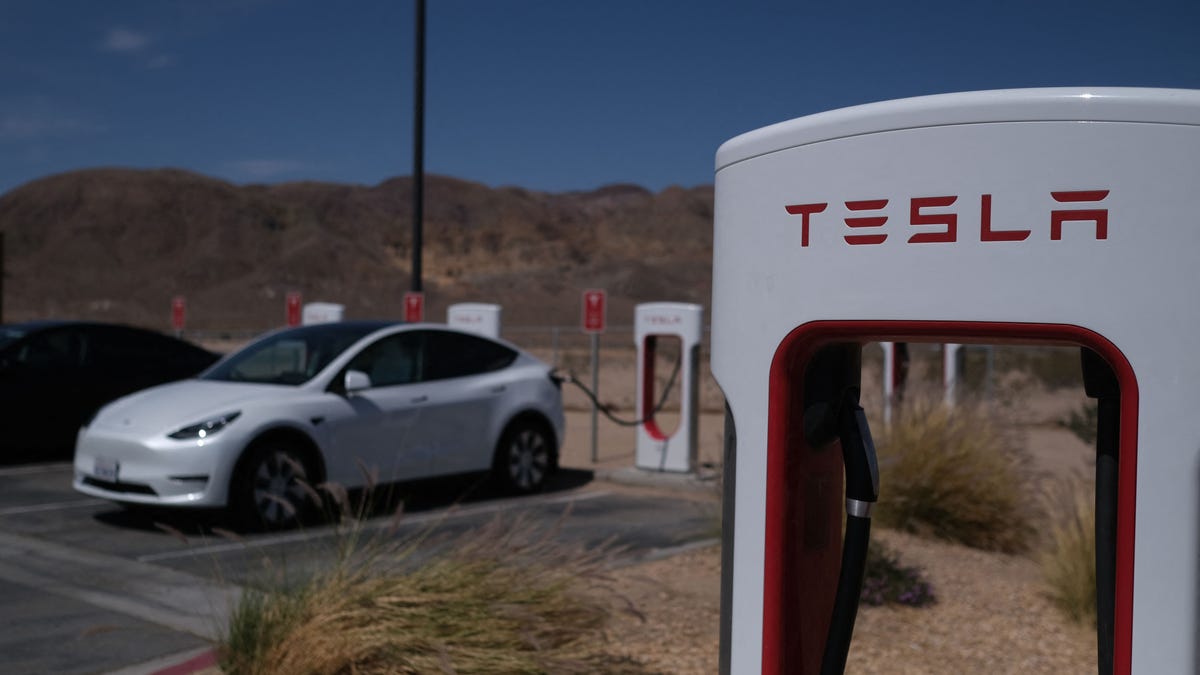Tesla Supplier Panasonic Is Looking to Increase Battery Density By 20 Percent

Photo: Chris Delmas (Getty Images)
Panasonic – a major battery supplier to Tesla – is eyeing big gains in battery energy density in the coming years. The company told Reuters that it is working to increase density by 20 percent by 2030.
Battery density is the name of the game when it comes to EVs. The battery system is usually the most expensive part of an EV and in some cases, more density means more range. For example, the driving range of a Tesla Model Y would increase by more than 62 miles. On the other hand, it could also mean lighter and roomier vehicles that have the same sort of range as vehicles do now.
For the uninitiated, a battery’s energy density is basically the battery’s ability to store energy in a given volume.
In an interview with Reuters, Shoichiro Watanabe, Panasonic’s chief technical officer, said the company is using a new mix of additives that would essentially allow cells to run at a higher voltage — all without damaging the battery’s performance. He says, “The race among battery makers has been to come up with more potent and effective additives.”
If Panasonic was able to achieve that 20-percent boost in density, it would reportedly translate to 900 watt-hours per liter (wh/l) for Panasonic’s top end cell. That’s a big improvement over the 750 wh/l cell found today.
The outlet reports that as more and more EV models are rolled out by automakers, investors are looking to see that Tesla and Panasonic can keep their lead in the industry.
Right now, Tesla is producing a new larger-form 4680 battery, which is supposed to lower production costs as well as improve range compared to the current-generation 2170 battery. That being said, Panasonic wouldn’t comment on whether the new battery tech they’re working on would be incorporated into those battery packs.
This new battery density technology may be a few years down the road, but hey, at least we have something to look forward to.



